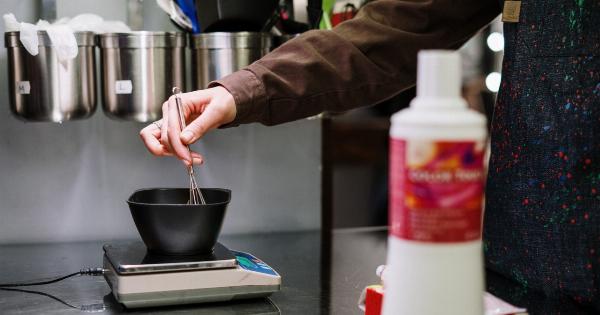Antiseptics are widely used to prevent infections and kill bacteria on wounds, cuts, and other skin surfaces.
While they are crucial for maintaining good hygiene and preventing the spread of harmful pathogens, antiseptics can sometimes cause irritation and adverse reactions on the skin. This irritation can range from mild redness and itching to more severe symptoms such as rash or dermatitis.
Understanding Antiseptics and their Role
Before diving into ways to minimize irritation caused by antiseptics, it is essential to understand their role and how they work.
Antiseptics are chemical substances that are designed to kill or inhibit the growth of microorganisms on living tissue surfaces, such as the skin. They have the ability to destroy bacteria, fungi, viruses, and other harmful pathogens that can cause infections.
Antiseptic agents can be classified into several categories, including alcohols, iodophors, chlorhexidine, hydrogen peroxide, and povidone-iodine.
Each type of antiseptic has its own mechanism of action and effectiveness against different types of microorganisms.
Common Causes of Irritation from Antiseptics
While antiseptics are generally safe to use, some individuals may experience irritation due to various factors. Understanding the common causes of irritation can help you better prevent and address any discomfort or adverse reactions.
Here are a few potential reasons why antiseptics may cause skin irritation:.
1. Sensitivity or Allergic Reactions
Some people may have hypersensitivity or allergies to certain antiseptic agents. This can result in skin irritation, redness, itching, or even a rash.
If you have a history of allergic reactions, it is important to carefully check the ingredients of antiseptic products before use.
2. Concentrated or Strong Formulations
Using highly concentrated or strong antiseptics can be too harsh for sensitive skin. These formulations may cause irritation, dryness, or even chemical burns.
It is essential to follow the manufacturer’s instructions and use the appropriate dilution or concentration for safe and effective use.
3. Prolonged or Excessive Use
Using antiseptics excessively or for prolonged periods can disrupt the natural balance of the skin’s microbiome and compromise its protective barrier. This can lead to irritation, dryness, and increased vulnerability to infections.
It is important to use antiseptics as directed and not to overuse them.
4. Wrong Choice of Antiseptic
Not all antiseptics are suitable for every type of wound or skin condition. Using the wrong antiseptic for a specific situation can potentially cause irritation or inadequate protection against pathogens.
It is recommended to consult a healthcare professional to determine which antiseptic is best suited for your needs.
Tips to Minimize Irritation from Antiseptics
While some individuals may experience irritation from antiseptics more easily than others, there are several effective ways to minimize and prevent such reactions. By following these guidelines, you can ensure safe and comfortable use of antiseptics:.
1. Conduct a Patch Test
Perform a patch test on a small area of your skin before applying an antiseptic to a larger area, especially if you have a history of sensitive skin or allergies. Apply a small amount and wait for 24-48 hours to observe any signs of adverse reactions.
2. Choose Suitable Antiseptics
Select antiseptics that are appropriate for the specific condition you are treating. Some wounds or infections may require different types of antiseptic agents.
Consult with a healthcare professional or pharmacist to determine the best choice for your situation.
3. Dilute Concentrated Antiseptics
If using concentrated antiseptic solutions, make sure to dilute them according to the instructions provided. Using undiluted or extremely concentrated antiseptics can increase the risk of skin irritation or chemical burns.
4. Follow Usage Guidelines
Always follow the instructions provided by the manufacturer for the specific antiseptic product you are using. This includes recommended application methods, duration, and frequency of use.
Overuse or improper application can lead to unnecessary irritation.
5. Keep the Skin Moisturized
Regularly moisturize your skin to maintain its natural barrier function and prevent dryness. Apply a gentle, fragrance-free moisturizer after using antiseptics, as dry skin is more prone to irritation.
Look for moisturizers containing ingredients like ceramides or hyaluronic acid.
6. Avoid Abrasive or Harsh Cleansing
When cleaning the skin before applying antiseptics, avoid abrasive or harsh cleansing techniques. Instead, gently wash the area with mild soap and lukewarm water. Pat dry with a clean towel instead of rubbing, as excessive friction can cause irritation.
7. Consider Alternative Antiseptic Products
If you experience frequent irritation from a specific antiseptic, consult with a healthcare professional to explore alternative product options.
Some individuals may be more sensitive to certain antiseptic agents, and a different formulation or ingredient may be better tolerated.
8. Seek Medical Advice for Severe Reactions
If you develop severe symptoms of irritation, such as persistent rash, blistering, or signs of infection, seek medical advice.
A healthcare professional can assess the situation, provide appropriate treatment, and recommend alternative antiseptic options if required.
9. Store Antiseptics Properly
Ensure that antiseptic products are stored according to the manufacturer’s instructions. Exposure to extreme temperatures or sunlight can alter their effectiveness and potentially lead to irritation or decreased antimicrobial activity.
Follow the recommended storage guidelines to maintain product integrity.
10. Read and Follow Expiry Dates
Expired antiseptic products may not be as effective and can potentially cause irritation. Always check the expiry date of the antiseptics before use and discard any expired products. Using fresh products can help minimize the risk of adverse reactions.
By following these tips, you can minimize the risk of irritation and ensure safe use of antiseptics.































